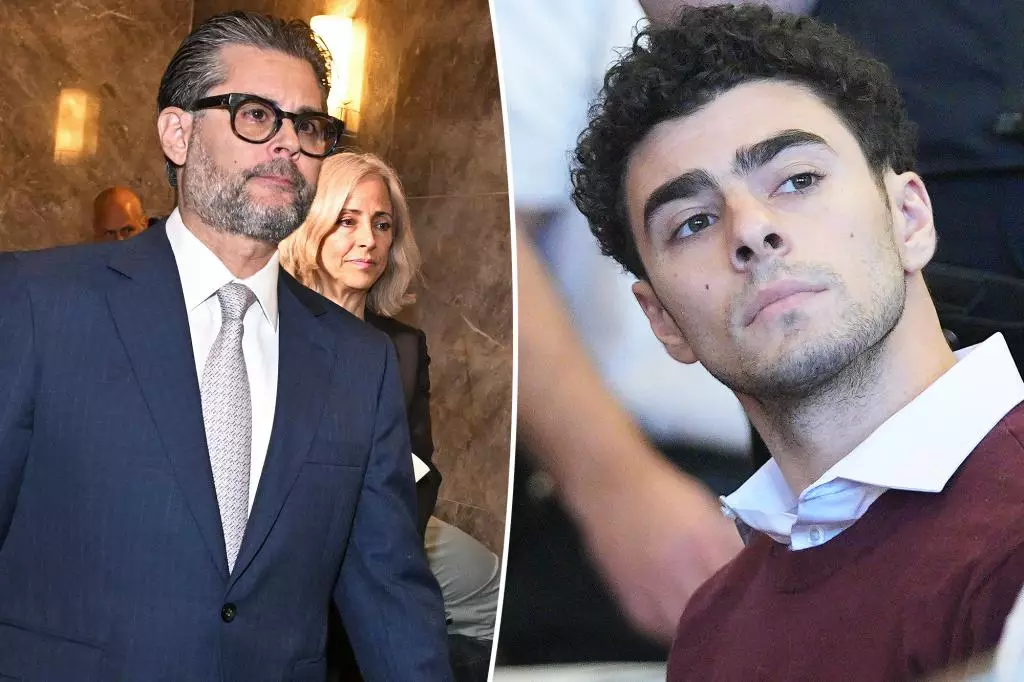In the complex landscape of the penal system, the role of prison consultants has garnered increased attention. These experts, often with personal experience in incarceration, provide guidance for individuals navigating the ominous realities of prison life. A notable figure in this field is Craig Rothfeld, who, after serving time for white-collar crimes, has emerged as a sought-after adviser. His clientele includes high-profile inmates, most recently, Luigi Mangione, who faces severe charges including the murder of UnitedHealthcare CEO Brian Thompson. Mangione’s decision to enlist Rothfeld is indicative of the unique pressures and fears associated with impending incarceration.
Rothfeld’s insights provide a glimpse into the daunting circumstances awaiting new prisoners. He describes the initial days as cloaked in uncertainty and despair—the very essence of a “Byzantine black hole.” This phrase encapsulates the confusion and helplessness that many feel when entering a correctional facility. Rothfeld’s experience highlights the harsh realities of being shackled and isolated, stripped of agency and autonomy.
From the Silver Screen to the Slammer
The case of Harvey Weinstein looms large as a reference point in many discussions surrounding the prison experience. Having been convicted of serious sexual offenses, Weinstein’s days behind bars have become synonymous with health complications and legal disputes. Rothfeld’s presence in Weinstein’s corner further emphasizes the intersection of health care and legal representation within the prison system. Weinstein’s experiences serve as a cautionary tale for others like Mangione—both men are facing trials that threaten to entangle them in a web of legal and personal turmoil.
Weinstein’s medical troubles—ranging from heart surgery to a diagnosis of leukemia—mirror the broader issues of health care access in correctional facilities. The notion that inmates are not receiving necessary medical attention raises critical ethical questions. One cannot help but wonder if the justice system adequately prioritizes the health and well-being of its most high-profile inmates, particularly those suffering from chronic ailments. Legal claims filed by Weinstein’s team underline systemic shortcomings that may extend beyond his case.
High-Profile Inmates: The Unmistakable Parallels
The juxtaposition of Mangione and Weinstein presents a fitting portrait of the pervasive anxieties surrounding high-profile inmates. While Mangione has yet to face trial, the prospect of sharing a prison floor with notorious figures—such as Sean “Diddy” Combs, embroiled in serious legal challenges—paints a vivid picture of the prison experience. The pressures of public scrutiny and severe allegations can amplify the psychological toll faced by these individuals. In a world where the walls of a prison house familiar faces from the headlines, the struggle for personal redemption becomes all the more complicated.
This narrative demonstrates that while the prison system might aim for punishment, it often inadvertently perpetuates cycles of despair. The lives of high-profile inmates like Mangione and Weinstein reflect the broader societal issues of justice, health care, and the quest for second chances. As observers, it’s essential to recognize that behind the headlines, there are real human experiences marked by hardship and resilience, emphasizing the need for reform within the penal system.
The interplay of legal representation and personal circumstances paints a sobering portrait of prison life, particularly for those thrust into the limelight. The unique challenges faced by individuals like Mangione and Weinstein remind us of the complex human stories hidden beneath the surface of criminal justice.

Leave a Reply